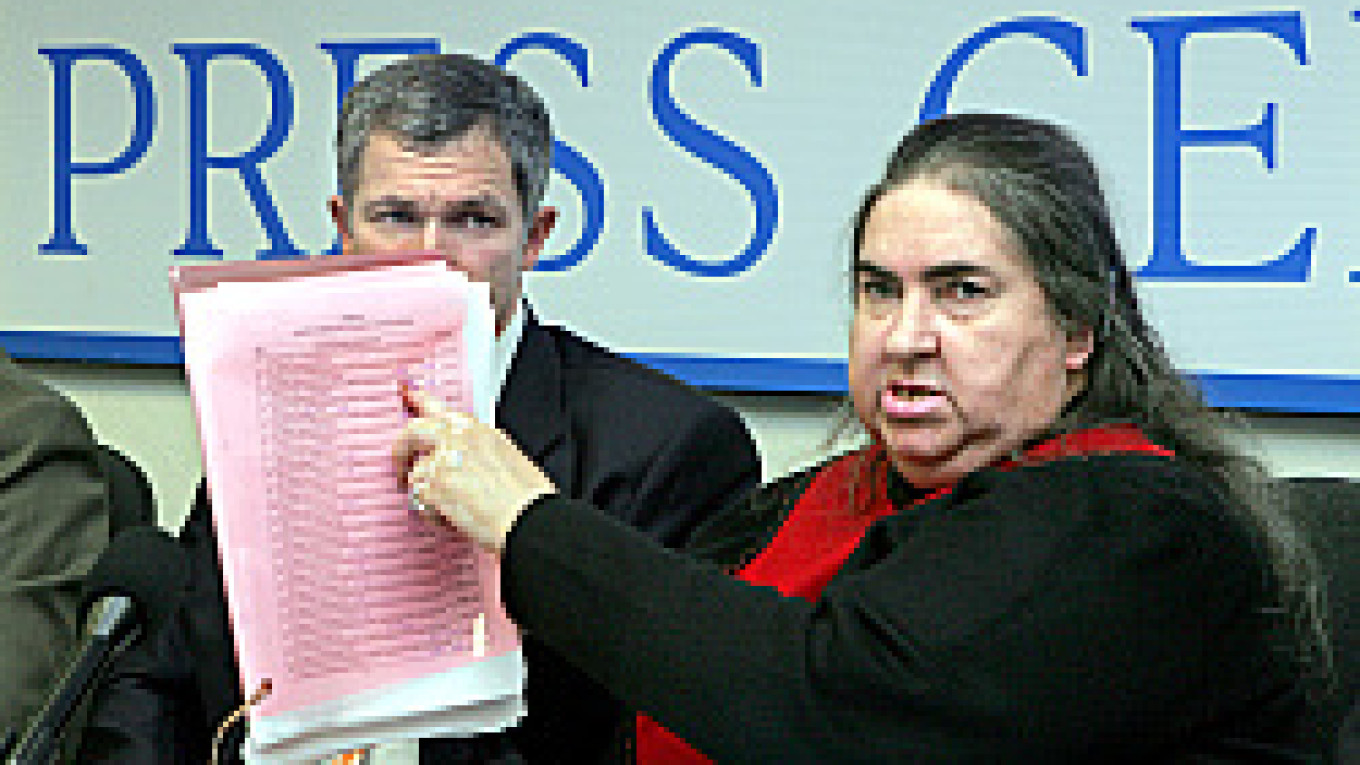At least 129 hostages died in the attack, which began five years ago Tuesday, and the relatives said they would petition the Prosecutor General's Office to investigate officials for abusing their power and forgery in the 1,500-page response sent to the Strasbourg-based court in the government's name.
"The wrong information the court has received could influence its decision," lawyer Igor Trunov, who represents victims' families in their lawsuit filed with the court, told reporters.
The families were to submit the appeal later Monday, and prosecutors will have 10 days to determine whether there are grounds to open an investigation, Trunov said. A Prosecutor General's Office spokesman said he could not immediately confirm receipt of the request. A Kremlin spokesman said he had no comment on the case.
The relatives of 24 victims filed the suit with the court in April 2003 and were later joined by relatives of another 34 victims. They now have until Nov. 12 to respond to the case presented by the government, Trunov said. The court could begin hearing the case by the end of November, he said.
To justify its actions during the rescue operation, Trunov said, the government underreported the number of victims who died in hospitals and exaggerated the amount of weapons and explosives carried by the 42 Chechen rebels who stormed the theater.
Authorities also misinformed the court about the dangerous nature of the gas used during the rescue operation, said Tatyana Karpova, head of the Nord Ost group, who lost her son in the attack.
Relatives plan to commemorate the fifth anniversary of the 56-hour standoff at 10 a.m. Friday in front of the theater.
A Message from The Moscow Times:
Dear readers,
We are facing unprecedented challenges. Russia's Prosecutor General's Office has designated The Moscow Times as an "undesirable" organization, criminalizing our work and putting our staff at risk of prosecution. This follows our earlier unjust labeling as a "foreign agent."
These actions are direct attempts to silence independent journalism in Russia. The authorities claim our work "discredits the decisions of the Russian leadership." We see things differently: we strive to provide accurate, unbiased reporting on Russia.
We, the journalists of The Moscow Times, refuse to be silenced. But to continue our work, we need your help.
Your support, no matter how small, makes a world of difference. If you can, please support us monthly starting from just $2. It's quick to set up, and every contribution makes a significant impact.
By supporting The Moscow Times, you're defending open, independent journalism in the face of repression. Thank you for standing with us.
Remind me later.


